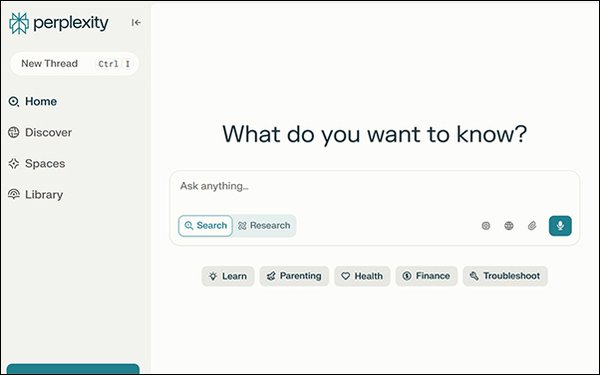
Perplexity has stepped up to argue with the U.S. Department
of Justice that it should not divest the Chrome browser from Google, calling the push a major "mistake" for the industry.
Perplexity CEO Aravind Srinivas argued that removing
Chrome from Google would hurt users while leaving the real issue of Android untouched.
"We don't believe anyone else can run a browser at that scale without a hit on quality, nor the business
model to be able to serve that many users profitably by keeping the browser free," Srinivas wrote on the social media platform X. "Chromium is open source, and others can build using that. Evidence:
Microsoft Edge and Perplexity's upcoming Comet browser."
Comet is Perplexity's new AI-powered browser, described as an "agentic search" experience that leverages AI to automate tasks. It aims to differentiate itself from
traditional browsers like Chrome by integrating AI capabilities directly into the browsing process.
advertisement
advertisement
Chrome, along with many other platforms, is built on Chromium, an
open-source project. Aside from Google's web browser, other projects built on Chromium include Microsoft Edge, Brave Browser, and Opera. It is also used by ChromiumOS, a Linux distribution designed
for web-based applications. Companies like Google, Microsoft, and others built their products on the Chromium project to create their own web browsers with unique features and branding.
"The
risk for America isn’t that Google is too dominant," Perplexity wrote in a blog post. "It’s when any company uses their dominance to limit consumer choice, especially when better options
already exist."
The remedy to this problem, according to Perplexity, is to prevent restrictive contracts that limit OEMs and carriers from
giving consumers choices. If regulators overreact in this remedy phase the alternative could be worse.
"Chrome has rightly earned its
dominant position in the market because it has been (emphasis on has-been) a superior product," Perplexity wrote. "For consumers, that made it a welcome choice."
After OpenAI showed interest
in buying Chrome, Perplexity reportedly testified at the trial it would like to buy Chrome if it came up for sale, and the open-source Chromium platform would likely go along with
it.
When asked during the remedy trial whether any company other than Google could operate a browser as large as Google Chrome without compromising quality or introducing new costs,
Perplexity Chief Business Officer Dmitry Shevelenko reportedly said, "I think we could do it."
But Perplexity wants to see consumer choice rather than a breakup of Google
assets. The company said the real issue is that Google forces phone makers to preload its apps like Search and Assistant to get access to essentials like Play Store or YouTube. Every smartphone powers
on with pre-selected apps the consumer didn't choose, and that is where the monopoly resides.
Openness works, but consumers need choice, Perplexity wrote in a blog post. "The heart of this
case is that a platform is no longer 'open' when it's accompanied by legal obligations to promote Google's products."
Android is an example.
While the operating system is open-source, Google's rules and revenue agreements are what made Google a monopoly, according to Perplexity. When a phonemaker wants to include any of Google's apps like
Google Maps or Play Store, it is required to include all of them, and preload Google Search and Google Assistant as required defaults and limit alternatives for their users.
There are no
shortages for buyers of the Chrome OS. DuckDuckGo executives also reportedly testified and shared an interest in buying Chrome if a federal court ordered Google to forcibly divest the
browser. The executive estimated Chrome's market value is more than $50
billion.